solar roofs
A solar roof is a roof system that uses solar energy to generate electricity and meet the various needs of a building. It consists of solar panels, brackets, inverters and other components that convert solar electricity into direct current or alternating current to meet the electricity needs of the roof and the interior of the building. Compared to conventional roofs, solar roofs not only save energy and reduce carbon emissions but are also aesthetically pleasing, durable and safe, making them one of the most important options for sustainable development in the future. As a solar roof manufacturer, we are committed to providing our customers with high-quality, efficient and customized products and services, so that you can enjoy the convenience and dividends of green energy!
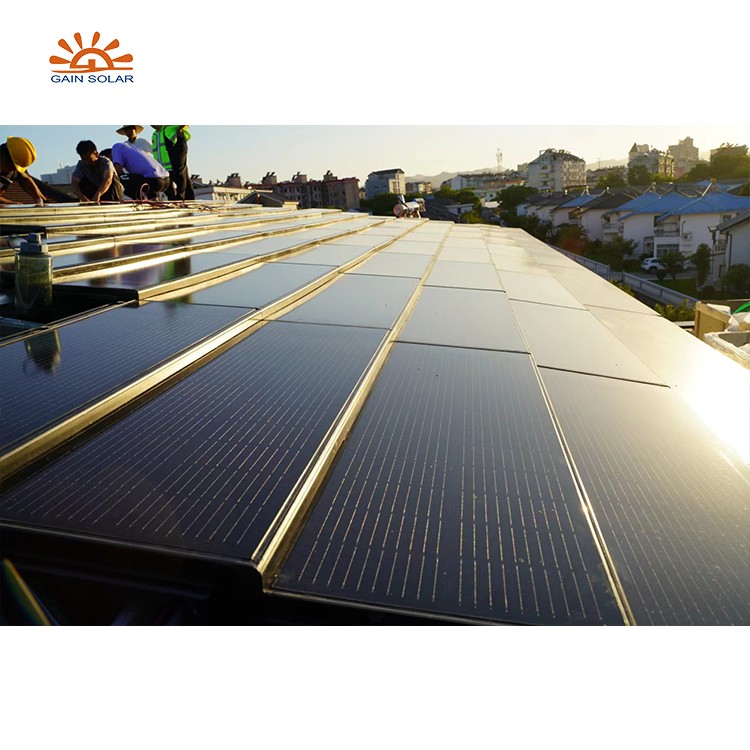
In addition to improving the quality of life in every way, solar roofs demonstrate excellent performance in terms of aesthetics, durability and safety. We believe that "energy saving, carbon emission reduction, aesthetics, durability and safety" are the best interpretations of the practical and useful values that solar roofs bring to people.
Energy saving: Solar roofs use solar energy to convert light energy into electricity, which can power your house and reduce your energy use. In areas with plenty of sun, solar roofs can provide a large amount of energy, helping residents to reduce their electricity bills and save energy.
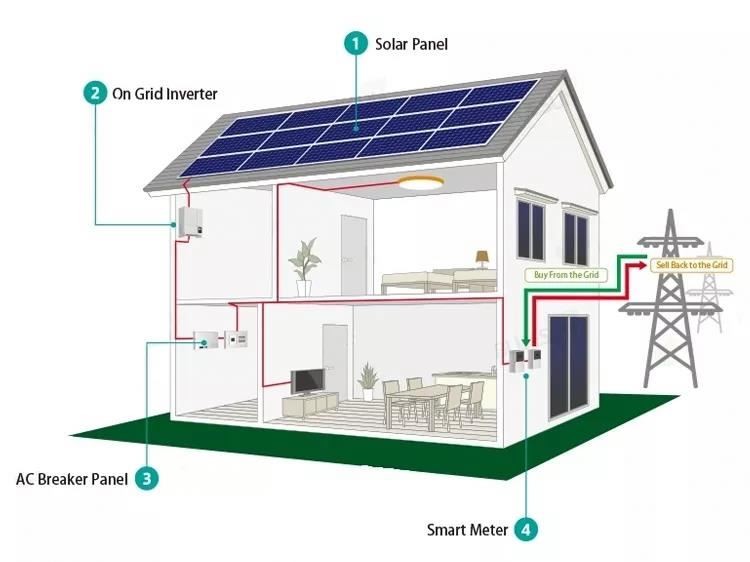
Reducing carbon emissions: solar roofs are suitable for a wide range of applications and significantly reduce the use of fossil fuels, so reducing the harm to the environment and also making an important contribution to improving air quality.
Aesthetically pleasing: our solar roofs are carefully designed to be aesthetically pleasing and our products are available in a wide range of colours, matching architectural styles to provide many aesthetic options.
Durable: Made from special materials and equipped with high quality technology, solar roofs offer superior durability, wind load resistance, water and fire resistance and a long service life.
Safety: the solar roof installation technology, which is carried out through a process of professional certification, installation and commissioning, poses no risk to the roof itself or to the occupants and is also very environmentally friendly, so it does not have a negative impact on humans.
Reducing costs:
More and more countries are taking the use of solar energy seriously and are giving some support and incentives in terms of policy to promote the spread of solar roofs around the world.
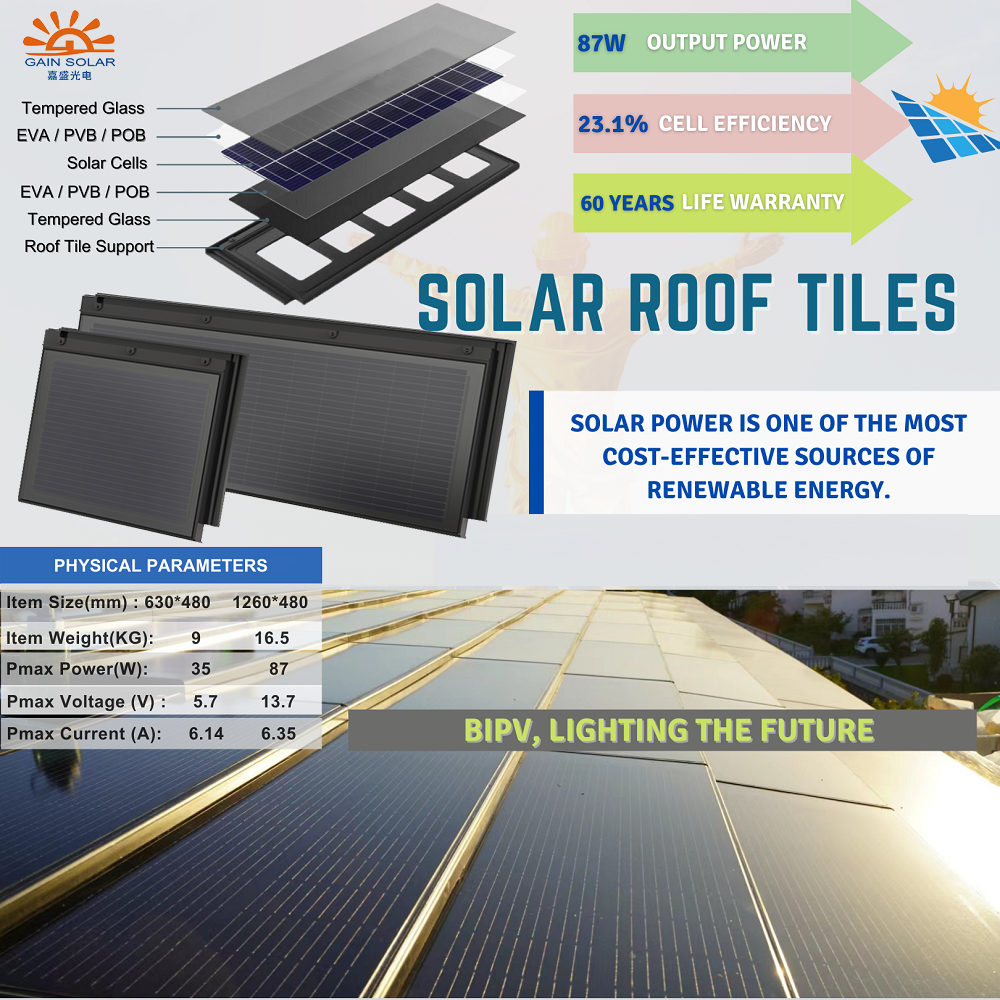
USA: The US government encourages residents and businesses to install solar roofs through federal tax credits, state tax credits and other means.
Germany: As a leader in the solar energy market, the German government has developed several subsidies for solar hot water and photovoltaic roofs.
Australia: The Australian government offers a number of financial support measures to encourage solar rooftops, such as the Solar Manufacturing Industry Strategy and various tax incentives.
France: The French government has implemented a renewable energy development plan and provides financial support for solar roofs to support the development of green energy.
A solar roof can provide you with electricity by absorbing solar radiation to convert it into electricity. It can help you to reduce your consumption of conventional electricity, lowering its use costs and saving energy.
The amount of energy and cost savings depends on several factors, such as your household's electricity needs, the size and efficiency of the solar roof system, the climatic conditions of your location, etc. In some cases, the benefits of a solar roof can be significant, especially in many cities where electricity costs are high and sunshine is plentiful. The exact amount of savings may need to be calculated and analyzed in detail.
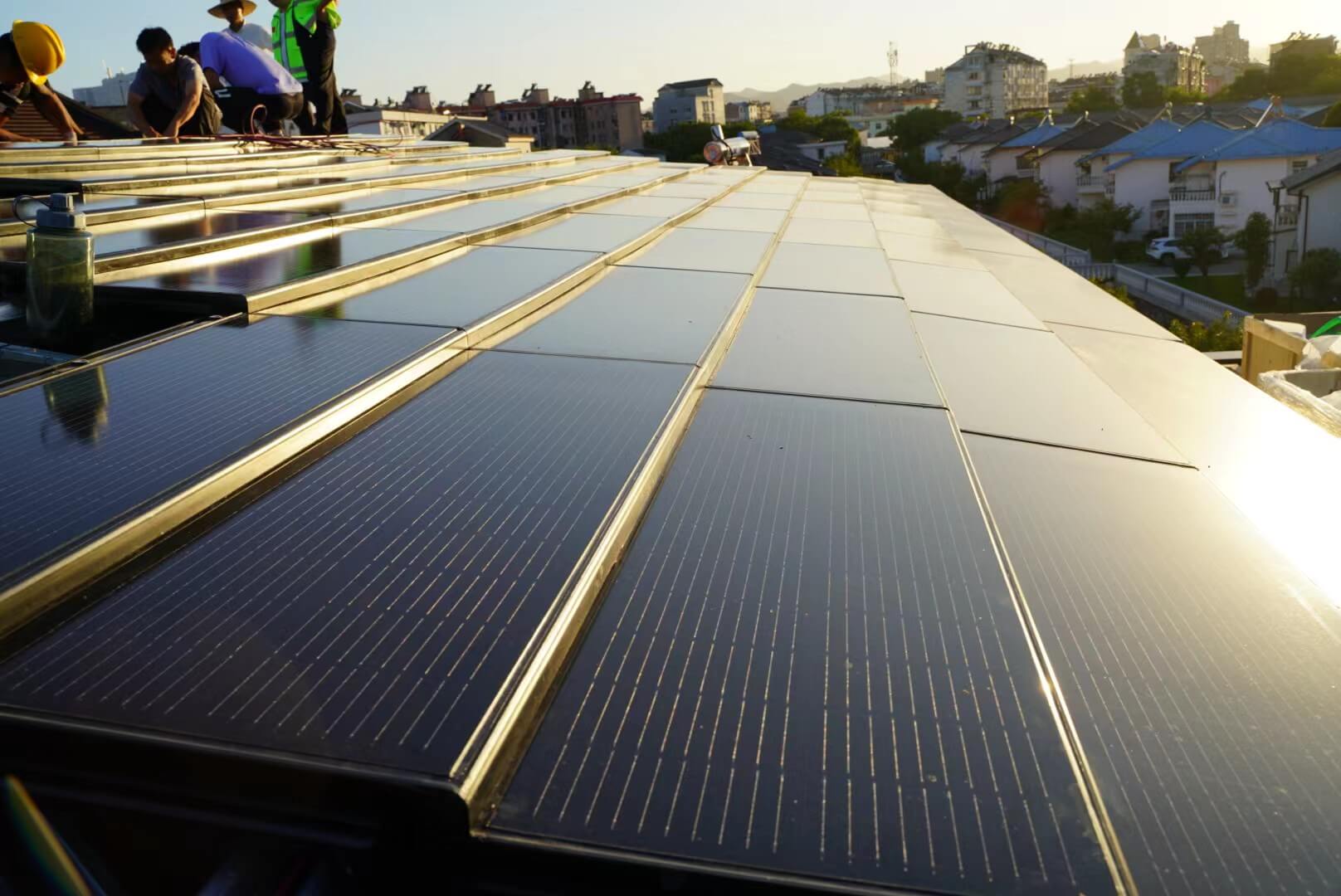
If you are considering installing a solar roof, you can contact one of our solar roofing professionals to ensure that you choose the best system for your home and environment. We can provide more specific and accurate savings figures and other relevant information to help you make an informed decision.
FAQ
Can I also store my excess energy production somewhere?
Yes, this is possible, for example, using a home battery. This is a storage place where you can keep your unused generated energy.
Can the roof of my house collapse by installing a solar energy installation?
Before you decide to have a solar energy installation installed, it is wise to have a constructor assess whether your roof is strong enough to install a solar energy installation.
If I have solar panels installed, can I also use them in the winter?
Solar panels use the light from the sun to produce electricity. Every day it gets light and the sun shines every now and then, so your solar panels also provide energy in the autumn and winter period. In these months, less is generated compared to the spring and summer months.
My installer had calculated much more yield for my solar panels. Is there anything I can do about this?
The yield depends on several factors, including the weather. If your installer has charged you more revenue than is realized in practice, we advise you to contact your installer about this.
solar roofs
Experience of using Gain Solar Solar Roofs
Homeowners:
"I love seeing my electricity bill decrease every month thanks to my solar roof!"
"I appreciate the peace of mind knowing that my home is being powered by renewable energy."
"The solar roof installation was seamless and didn't disrupt my daily life."
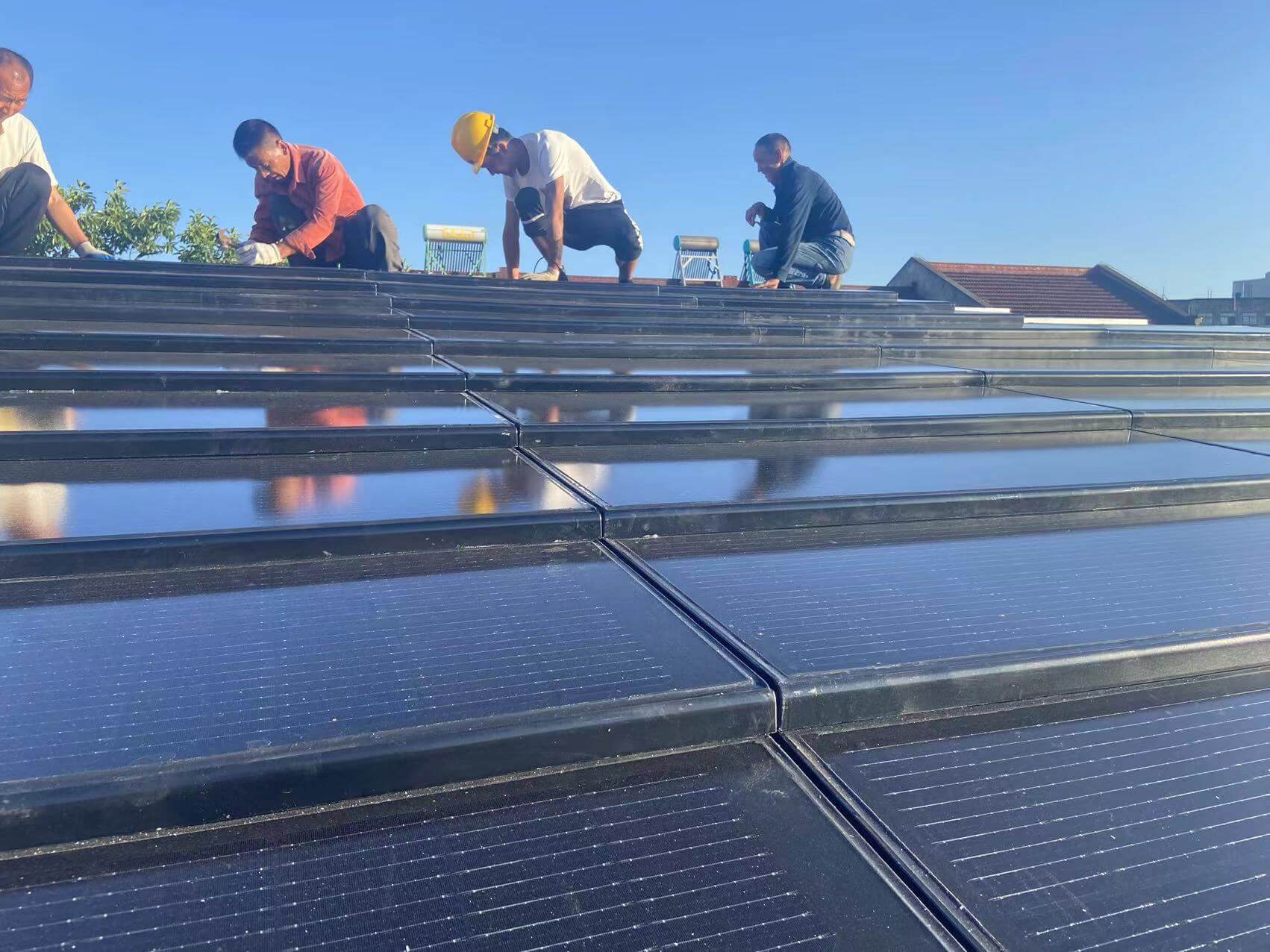
Business owners:
"Installing a solar roof has significantly reduced our energy costs and allowed us to allocate funds towards other areas of our business."
"Customers appreciate our commitment to sustainability and it has helped us stand out in our industry."
"We've been able to generate revenue by selling excess energy back to the grid."
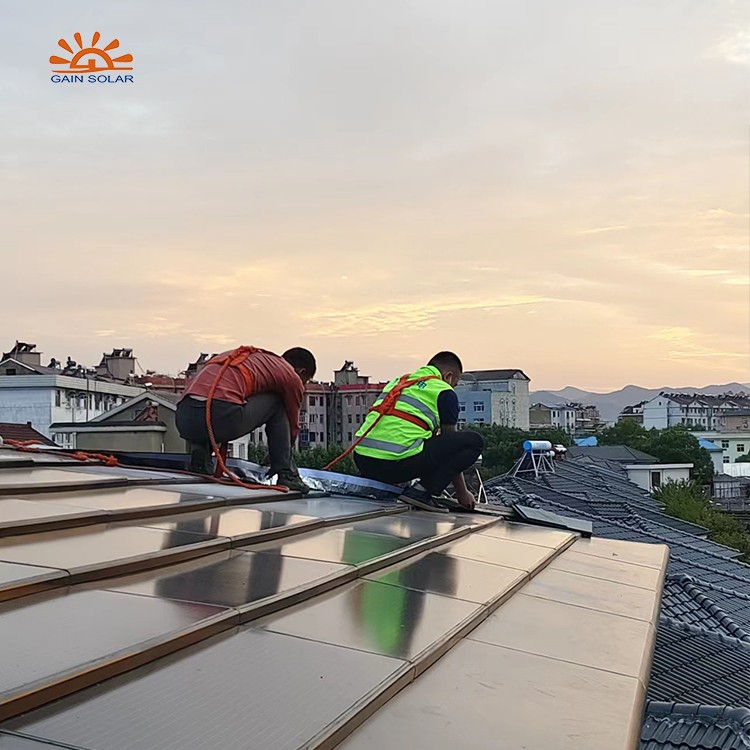
Environmentalists:
"I'm so happy to be reducing my carbon footprint and contributing to a cleaner future."
"Seeing my solar roof in action is a daily reminder of the positive impact I'm making on the environment."
"I appreciate the durability and longevity of the solar roof, knowing that it will continue to provide renewable energy for many years to come."
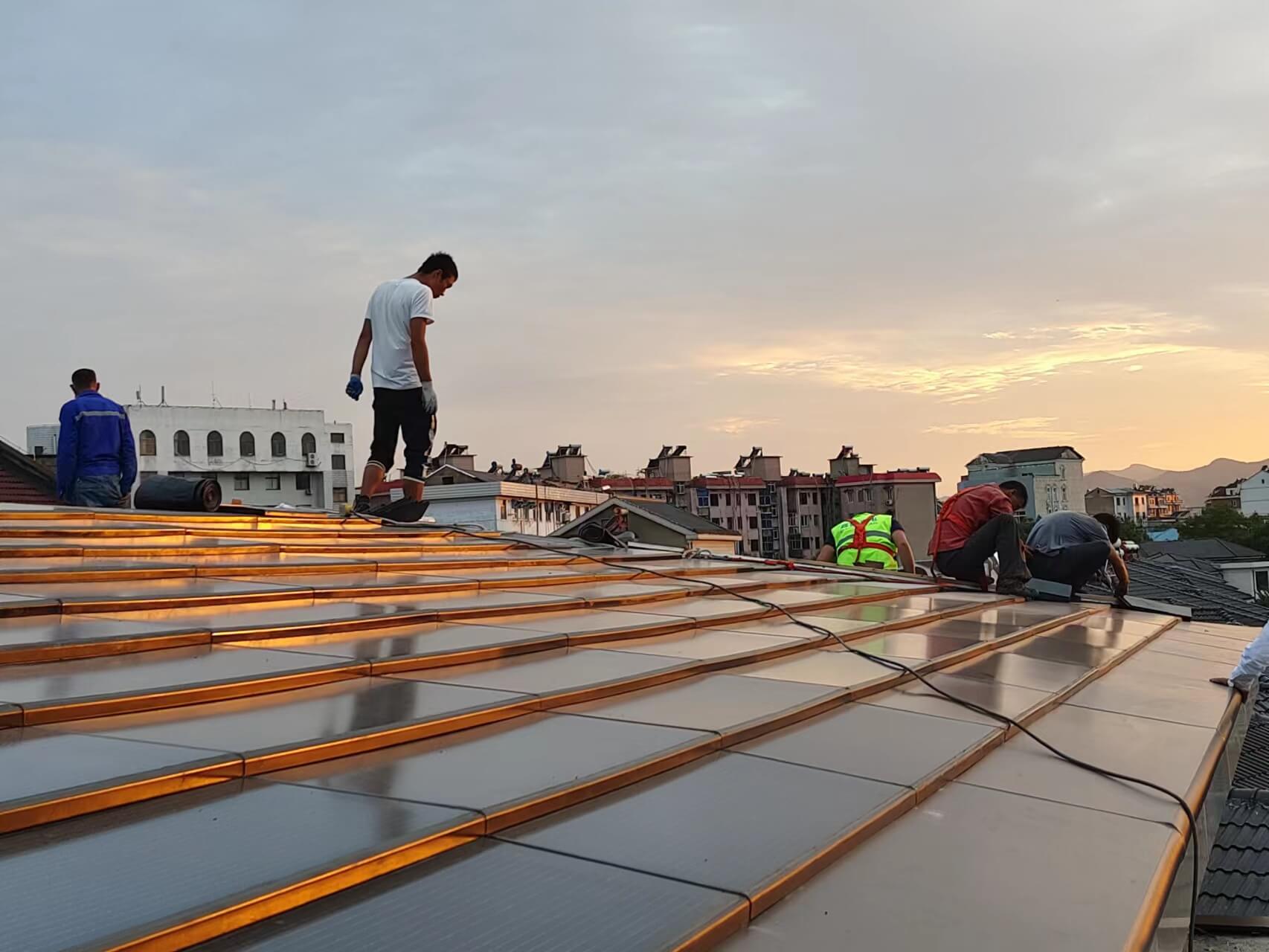
Off-grid homeowners:
"The solar roof has allowed me to live off-grid and become more self-sufficient."
"I love having control over my own energy production and not having to rely on the grid."
"The solar roof has provided reliable and consistent energy, even during power outages."
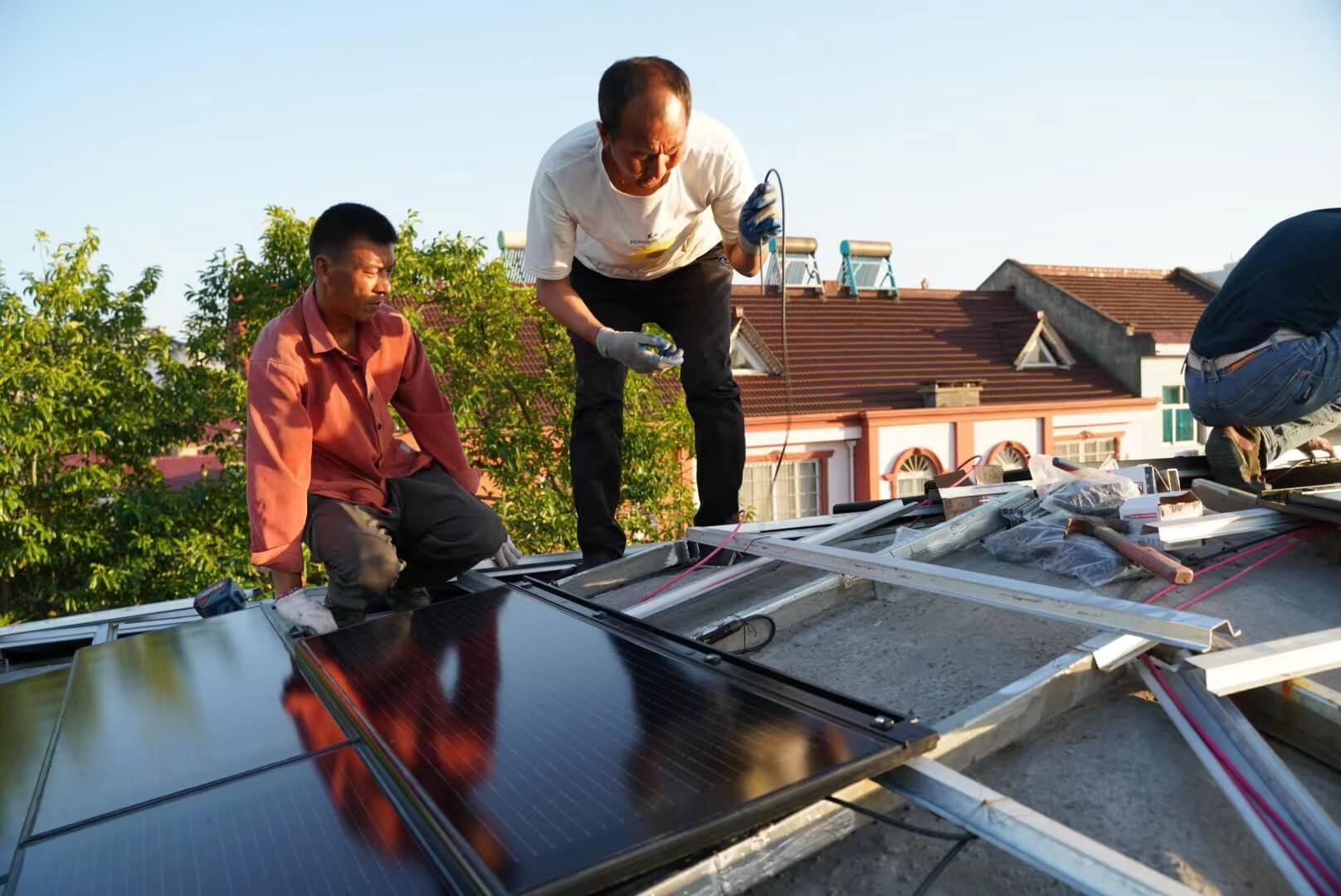
Solar panels are stand-alone devices that are installed on top of existing roofs or on the ground. They are made up of photovoltaic cells that convert sunlight into electricity. Solar panels can be installed on homes, businesses, and other structures.
On the other hand, a solar roof is a roofing material that also serves as a solar panel. It is designed to replace traditional roofing materials, such as asphalt shingles or tiles. Solar roofs are integrated with photovoltaic cells that generate electricity from the sun's rays.
Here are some key differences between solar roofs and solar panels:
Aesthetic appeal: Solar roofs are designed to blend seamlessly with the roofline of a building, giving it a sleek and modern appearance. Solar panels, on the other hand, can look bulky and awkward when installed on top of a roof.
Installation: Solar panels are installed on top of an existing roof, which can be time-consuming and require modifications to the roof structure. Solar roofs, on the other hand, are designed to be installed as a roofing material, eliminating the need for a separate installation process.
Durability: Solar roofs are built to withstand harsh weather conditions and can last for decades. Solar panels, however, may require replacement after a certain number of years.
Energy output: Solar roofs are designed to maximize energy output, as they cover the entire roof surface. Solar panels, on the other hand, may not cover the entire roof and may not produce as much energy as a solar roof.
In summary, while both solar roofs and solar panels can provide renewable energy, a solar roof offers a more integrated and aesthetically pleasing solution for those looking to generate solar power while also enhancing the appearance and durability of their home or building.
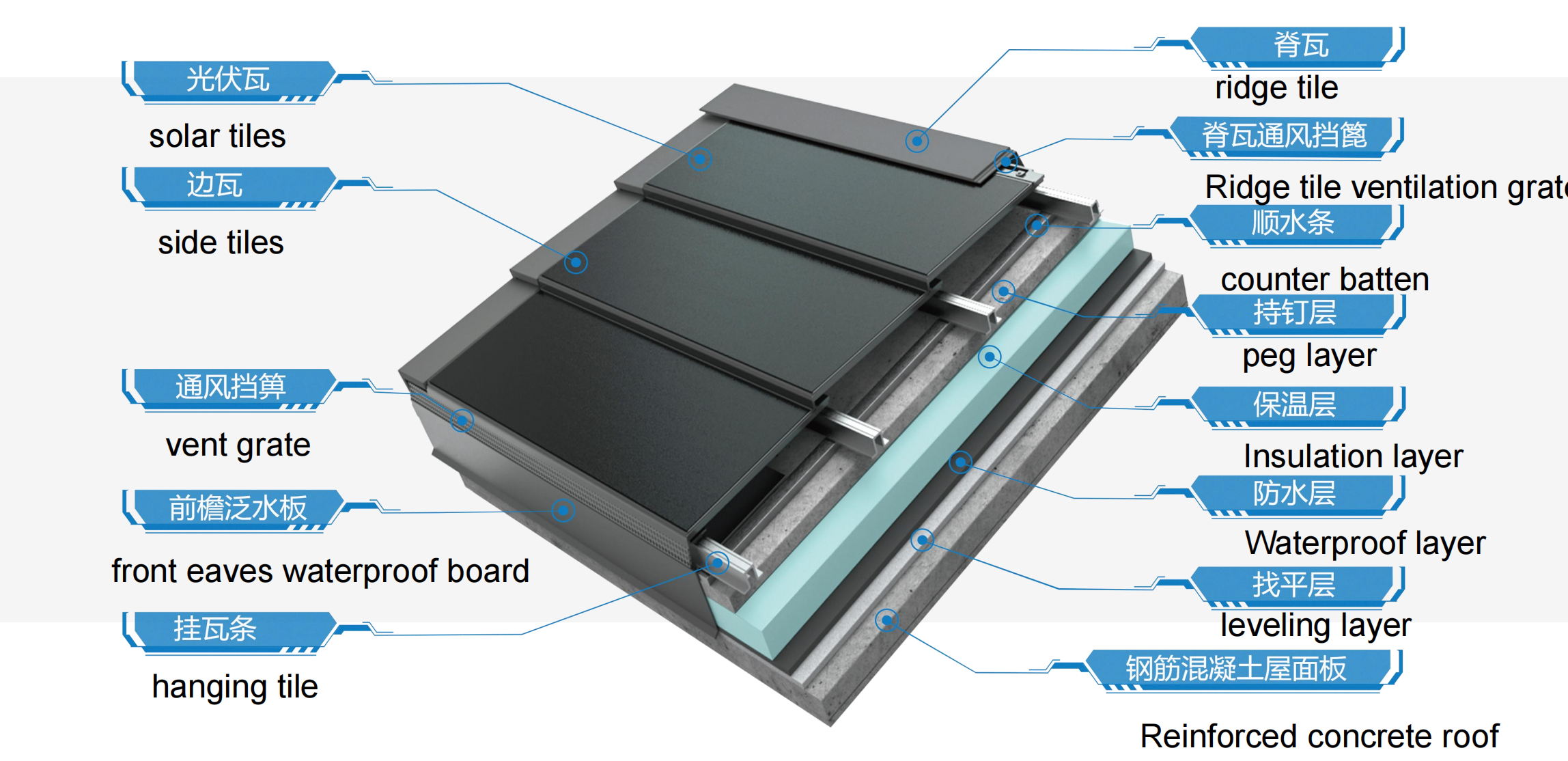
Related Information
Contact Us